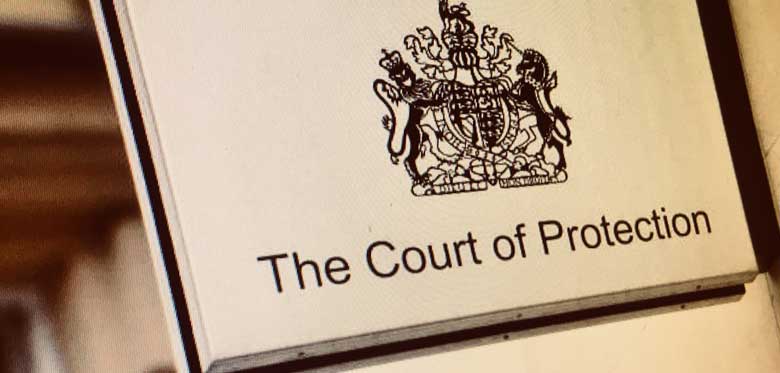It may seem surprising to those not familiar with health and welfare cases in the Court of Protection, but it is common for judges to visit the person lacking mental capacity at the centre of the case (P) in order to seek their wishes and feelings about the decision which is to be made. This could be for example, a judge visiting a hospital, care home or other care setting, often with P’s solicitor. In other cases, the individual may be very involved in the case and attend court hearings and express a wish to speak to the judge either before or during a hearing.
The role of the Court of Protection is to make decisions on behalf of individuals who have been assessed as lacking capacity to make the decisions for themselves, due to a diagnosed mental impairment (such as a brain injury, dementia or learning disability). The decisions are often big, potentially life-changing decisions – such as where they should live, what care they should receive, who they should have contact with, whether they have capacity to decide to engage in sexual relations or to decide to accept or refuse serious medical treatment.
Notwithstanding the fact that P has been assessed to lack capacity to make the decision that needs to be made on their behalf (usually due to a dispute between the relevant public body e.g. the local authority or clinical commissioning group and P’s family members), their wishes and feelings are a very important factor that the court must consider when making a decision (s4(6) Mental Capacity Act 2005).
The need to promote and facilitate P’s participation in their case, so far as they are able and willing to participate) is also set out in the Court of Protection Rules 2017.
In the recent case of Re AH [2021] EWCA Civ 1768, a Judge visited P in hospital and decided it was not in P’s best interests to continue to receive life-sustaining ventilation. The Court of Appeal was asked to overturn this decision. The main issue was that the Judge’s visit had taken place after the parties had made final submissions, but before the Judge had made a decision. It was argued that the Judge’s visit was unfair as the parties were not given the note of the visit or the opportunity to make submissions in respect of the visit prior to a decision being made. The appeal was allowed and a re-hearing was deemed necessary.
Following this case, Mr Justice Hayden has issued updated practical guidance on judicial visits to P in Court of Protection proceedings. The guidance is intended to provide suggestions as to how the court and legal practitioners can ensure meetings between the judge and P, during proceedings, are “conducted most effectively and enhance the participation of P”.
The guidance takes into consideration that during the course of the pandemic, Court of Protection proceedings have taken place remotely and have generally been effective. This has included judges making remote visits to care homes, intensive care units and a variety of other placements.
The guidance sets out the principles which will apply to judicial visits. Here are the key points to note from the updated guidance:
- The decision to meet P must be made by the judge, having listened to representations from the parties;
- There should be discussion to identify a clear understanding of the scope of the visit;
- A visit may lead to the judge making further enquiries of the parties;
- The Judge must be accompanied, usually, by the Official Solicitor or their representative;
- It will be rare for a family member of P to be present at a judicial visit; and
- A note must be taken of the visit and made available to the judge for their approval.
When applying the above principles and the application is not urgent, the parties should provide the court with:
- Information to help the judge decide whether a visit to P is likely to be required;
- What practical steps are needed to be taken to facilitate a visit;
- Whether there is any specific assistance that can be given to the judge;
- Who will attend the visit; and
- Who will take a note of the visit.
The above points are not a comprehensive list of matters which needs to be considered. It is the decision of each individual judge whether they will visit P however this guidance is helpful in assisting legal practitioners when a judicial visit to P may need to be considered.
Should you require any advice or assistance in respect of a mental capacity issue, please do not hesitate to contact our specialist Court of Protection and community care team who have extensive knowledge and expertise in this area, on 01616 966 229.
By Jessica Hobro, Graduate Paralegal, Court of Protection and community care team



Comments